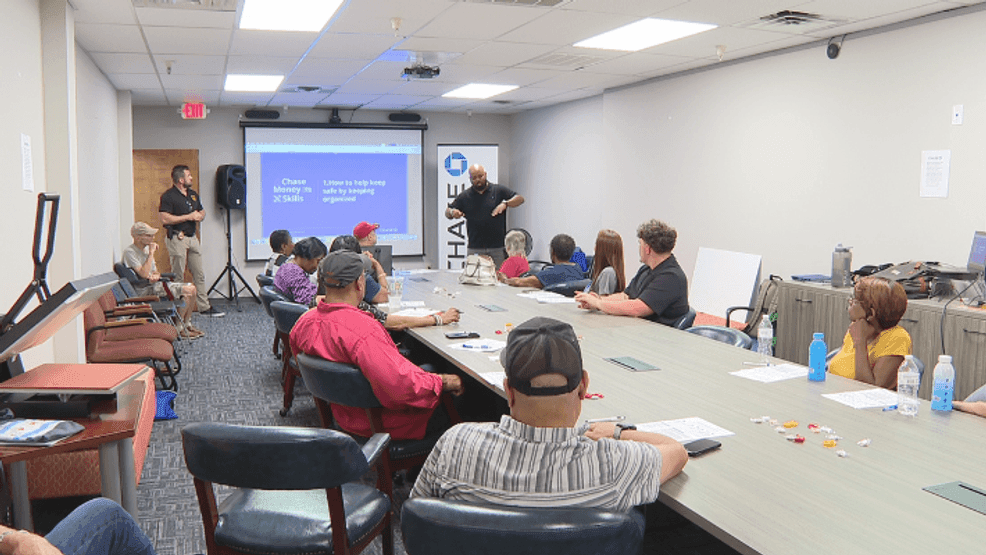CHARLESTON, W.Va. (WCHS) — With text, phone call and email scams on the rise, Charleston Police and Chase Bank teamed up on Friday to offer a workshop to seniors in Charleston.
According to the Federal Trade Commission, in 2024 alone, West Virginians lost about $27 million in fraud and scams, and are already on pace to lose more in 2025.
From E-Z Pass to jury duty to romance scams, the people who attended Friday’s workshop at the Region 3 Workforce Development Board in Charleston had heard and seen it all. Keith Beverly, a Charleston man who was there, said it is easy to fall victim when the scammers are sounding more and more legitimate.
“They’re just getting some things thrown at them that’s coming across so legitimate,” Beverly said. “Like I said, even myself, I had to take a personal trip down to the Social Security office, because I thought what I received was directly from them. Come to find out, it wasn’t.”
Sgt. Travis Bailes, with the Charleston Police Department, talked with the group on Friday about some of the red flags to be looking for.
“If it sounds too good to be true, it probably is,” Sgt. Bailes said. “That’s the number one thing. You should never give any of your personal information out on any form of media, whether it be email, over the phone. It’s best to not do anything at all unless you are one hundred percent certain it’s from a trusted source that is contacting you.”
Bailes said it is best to verify with the actual agency or organization or even relative about what the call is requesting. He said anything asking people to purchase gift cards or claim winnings by clicking on a link is more than likely going to be a scam.
As scammers become more advanced, more and more people fall victim. Rashad Sanders, who serves as Chase Bank’s community manager for West Virginia, said that the first thing people should do when they realize they have been scammed is call the police and then their bank.
“You want to make sure that you’re reporting that scam, especially what happens like with your bank, you want to make sure you’re in contact with someone immediately,” Sanders said. “If you don’t feel comfortable doing that over the phone, make sure you go into your financial institution, report that fraud, sit down with someone and talk with them face to face to make sure you get the problem resolved as soon as possible.”
Once a scammer has the money, both Sanders and Bailes said it is next to impossible to track and retrieve, as the scammers are usually operating from out of the country. This is one of the main reasons why organizers say events like Friday’s are important to make sure people, especially seniors, do not fall victim in the first place.
“I think that’s what the whole process is of this gathering today is to get people around the table to speak about their own personal incidents and run-ins so that they can share with others and let them know they’re not alone,” Beverly said.
Click Here For The Original Source.

